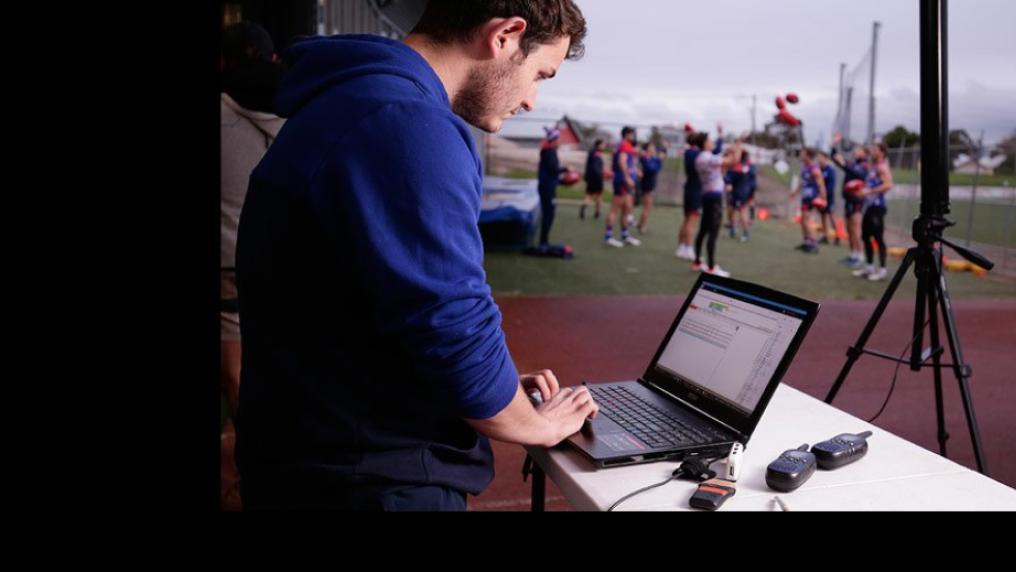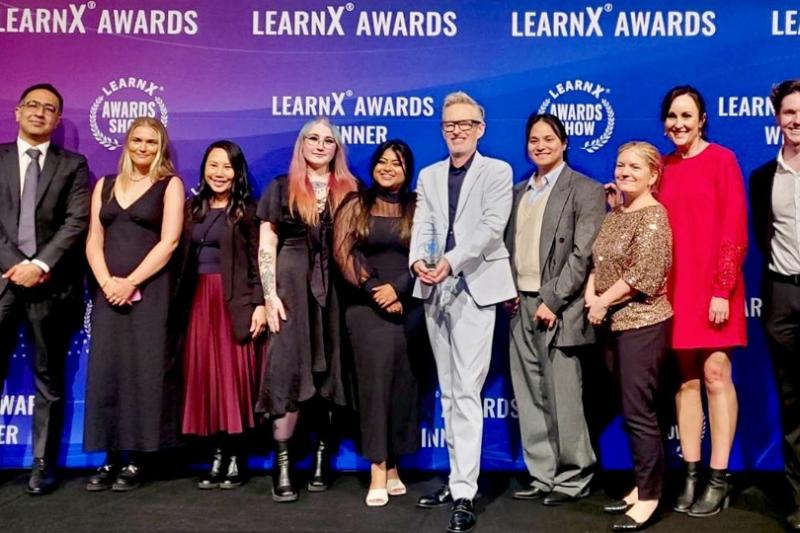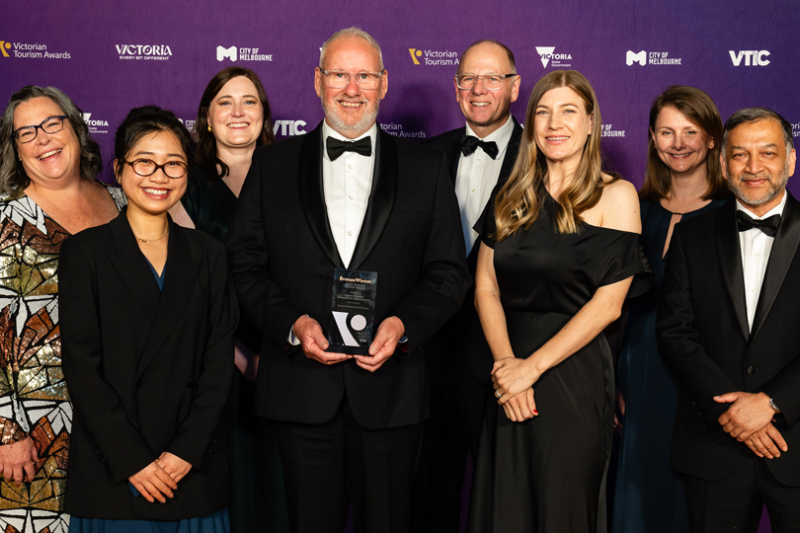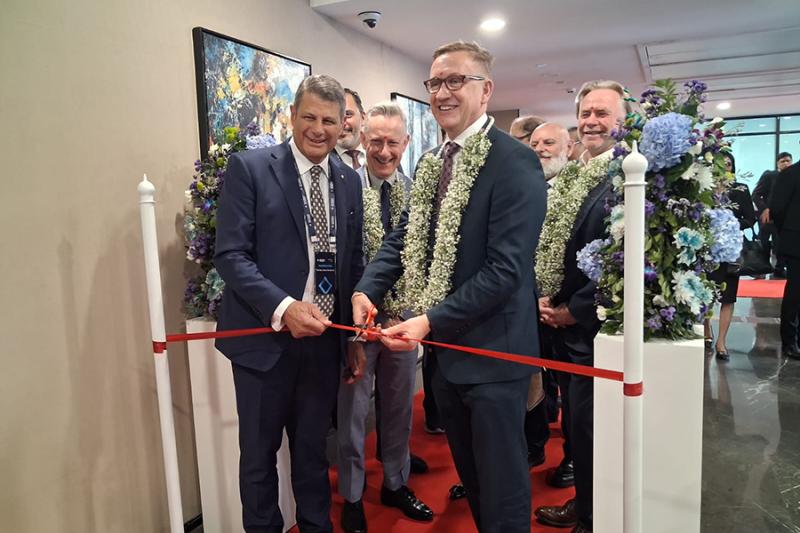Kicking goals together

Victoria University (VU) sports scientists and students are working with Western Bulldogs players to improve their game.
The research partnership is believed to be the only one of its kind in Australia.
Two of VU's sports scientists are embedded full time at the club investigating ways to improve the performances of players and coaches.
About 30 VU students from sports science, marketing, accounting, community development and other disciplines also conduct research or complete cadetships at the club’s Whitten Oval headquarters.
"The partnership agreement provides a lot of opportunities for our honours and PhD students to work in a high performance professional sport," says Professor Michael McKenna, Professor of Exercise Physiology.
Research areas
Dr Sam Robertson is a sports scientist from VU’s Institute of Sport, Exercise and Active Living (ISEAL) who is embedded at the club. He works with the Bulldogs’ coaching staff and oversees research for the club on analytics, player performance analysis, skill acquisition, and recruiting.
VU has also done research on player nutrition, physiology and physical preparation for training and matches.
Five PhD scholarship students are currently investigating:
- the effect of sleep on player recovery
- the balance of running and strength work in training sessions
- ways to evaluate decision-making in the management of player
- technology use and new types of data to inform on-field tactics
- integrating skill and physiological data to better understand training and match demands.
"The quality of the information coming from the research adds an extra layer of rigour to the club’s decision-making," Dr Robertson says. "The aim is to take away the subjective component of football – to bring in objective measures and a scientific approach to the way the game is played."
Dr Robertson says the Western Bulldogs is the only club in Australia to have this sort of research partnership with a university.
Benefits of the research
The research team's work on sleep and player recovery has already had an impact on the club. Football clubs have traditionally trained in the morning. The Western Bulldogs have shifted two of their morning training sessions to late afternoon over the past couple of seasons. VU researchers validated this decision, using sleep monitors to test how long it took them to go to sleep and the quality of that sleep.
"The evidence is really strong that sleep is the most important recovery tool that an athlete has," Dr Robertson says.
Graham Lowe, Western Bulldogs’ General Manager, Football, says the club is reaping numerous benefits from its involvement in such bespoke research.
"The research answers the sorts of questions that we want to ask," he says.
"We're using GPS and other player monitoring tools to understand the impact of our total preparation on players in training, in games and other areas. It helps us manage players in the optimal way on and off the field so they can perform consistently for us."
The partnership has also given players an opportunity to gain extra educational qualifications. About 10 players, representing about one quarter of the playing group, are enrolled in courses at VU.
Read Research Highlights
You can read the full sports science story in Research Highlights.
For copies of the publication or to discuss research opportunities contact the Acting Director of the Office for Research, Bree Nicholas at .



